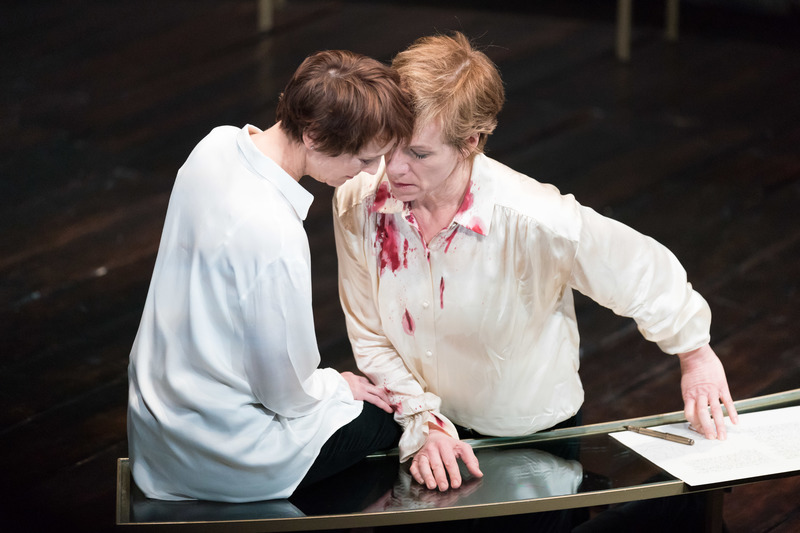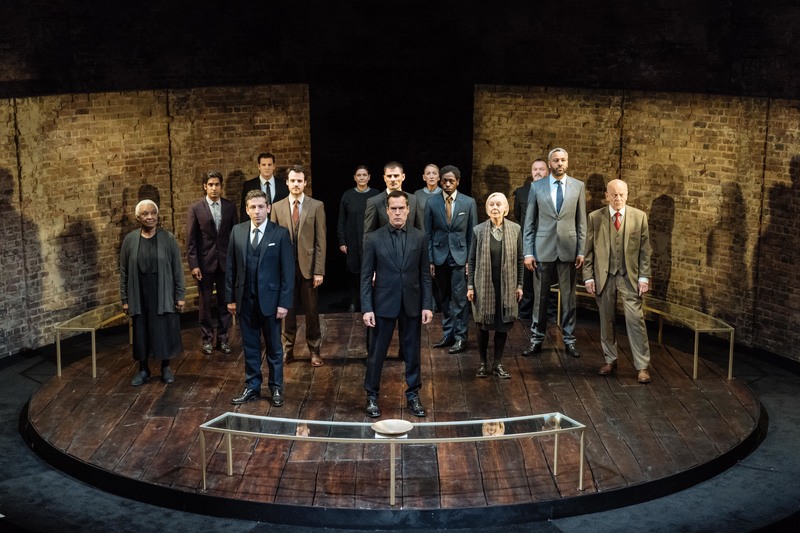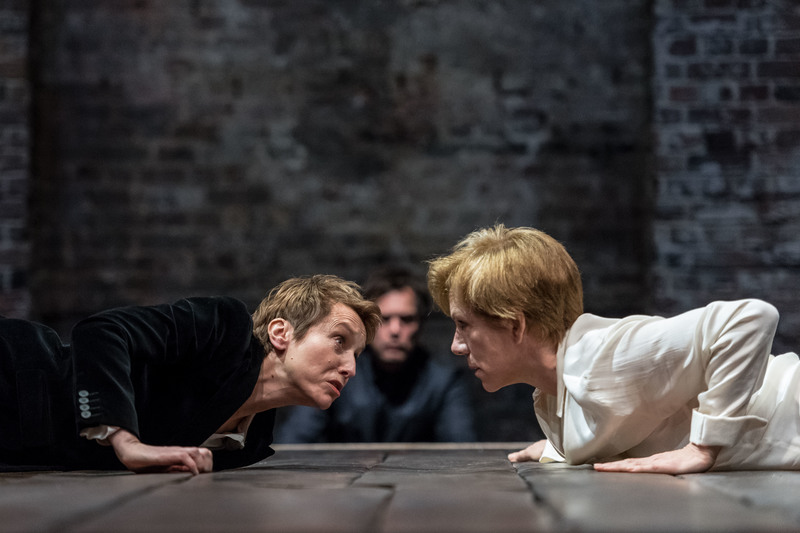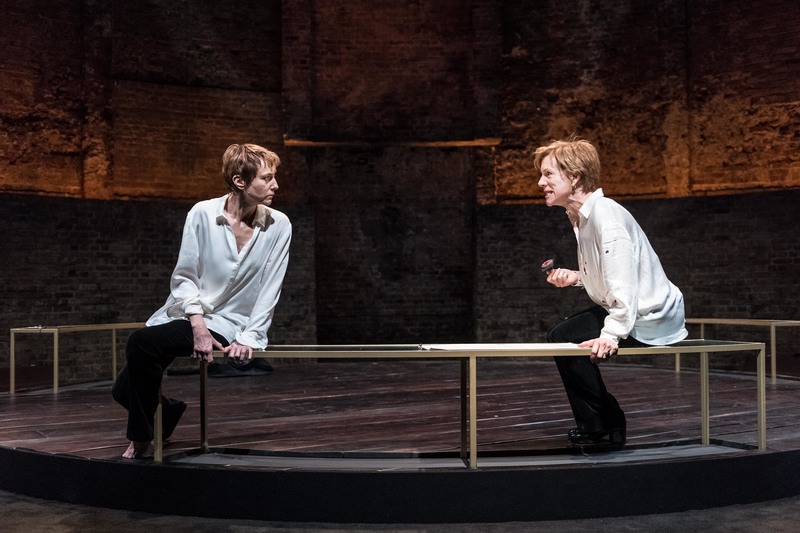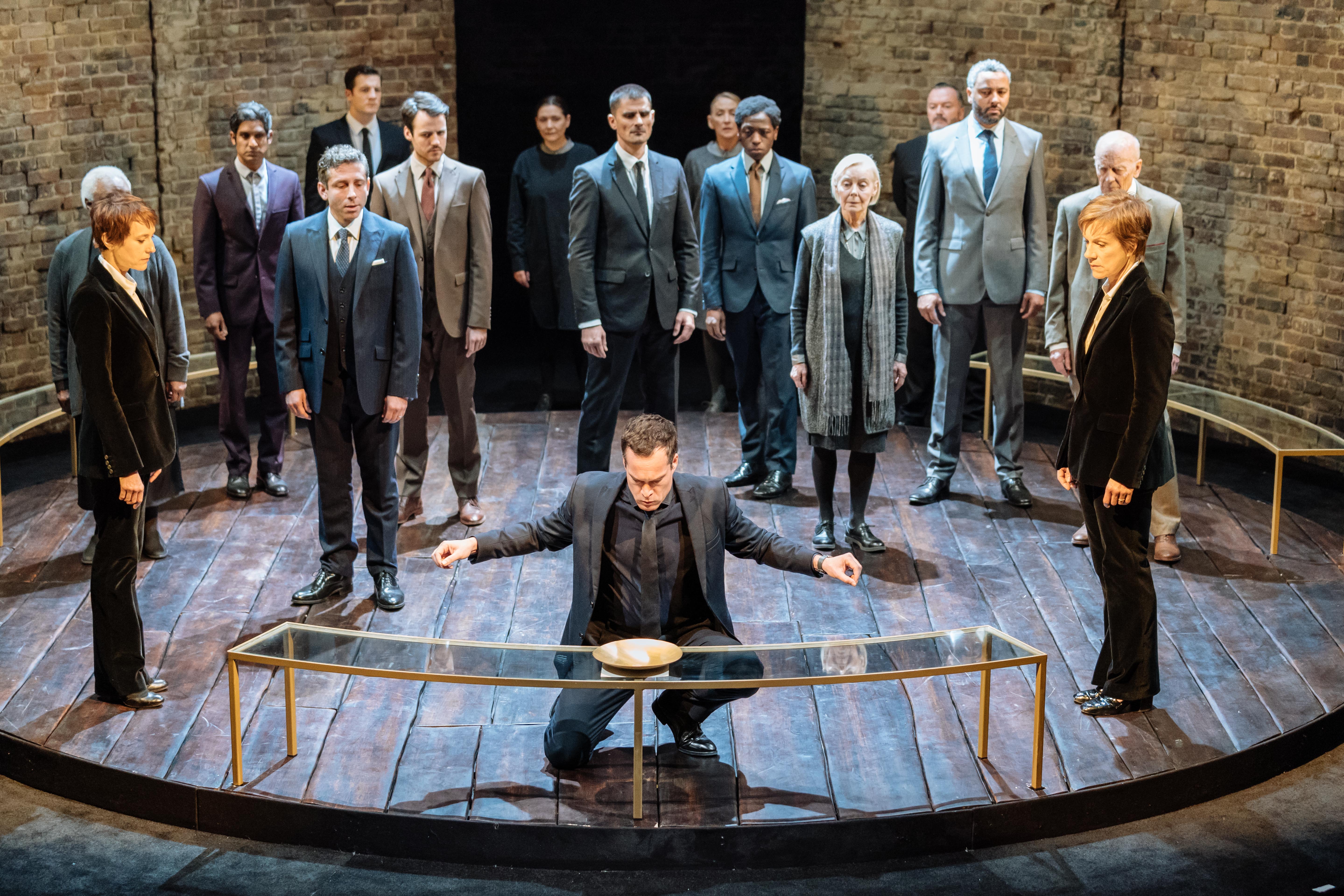Rudi Dharmalingam- ‘Salford and Manchester have a very special place in my heart’
| 5th April 2018
After a sold-out season at the Almeida theatre and a run at the West End, Robert Icke’s critically acclaimed adaptation of Mary Stuart is coming to Salford 17-21 April.
VIVA caught up with Rudi Dharmalingam, who plays Mortimer, to ask how he feels to be returning to The Lowry…
“Salford and Manchester in general have a very special place in my heart, simply because I moved to Manchester when I was 18,” explains Rudi, who studied Performing Arts at The University of Salford. “I moved quite far away from my home, really, because I’m from Kent, so it was all quite daunting and scary and exciting.”

Photo credit John Cartwright
Since graduating in 2002, Rudi has performed a few times at The Lowry but is yet to see Media city. “It’s lovely. I mean the Lowry itself, the building is a stunning piece of architecture, and it has a very special atmosphere and warmth to it.”
However, acting was not always Rudi’s dream: “Growing up as a kid, I was very much focussed on my school work, but my main hobby was table tennis.” Rudi played the sport from age 7-16 and believes that this influenced his acting. “It taught me a very high level of discipline, structure and commitment. I like to think that I’ve carried that through into my professional life as an actor. I don’t play the game anymore, but those qualities stay with me.”
By age sixteen, Rudi had swapped the sporting world for the stage, choosing to take A-Level Theatre Studies. “My friend found this thing called National Youth Theatre. I’d never heard of it, and we thought, well, okay, let’s give this a go. We just applied on a whim really, and both of us got in, which was just amazing. That was a real stepping stone for me. It was three weeks, surrounded by these incredibly talented, wonderful young people, and it left me hungry for more. I certainly knew when I finished that three-week course that this was what I wanted to do with my life.”
However, drama school was not an option for Rudi. “My mum was a nurse. My dad was a radiographer. I had no one around me to say you need to go to drama school. It was always go to university and do a degree. Also, financially there was no way that I could make that work, so going to university was a default option for me.”

Rudi as Mortimer. Photo credit Manuel Harlan.
Rudi describes his time at The University of Salford as being “the best three years” of his life. When he left, though, he did not secure an acting job straight away. “After that, I just sold conservatories for two years. I had an agent; I was auditioning. I wasn’t working, I wasn’t getting any jobs, and I had to get a job because, obviously, you’re not living in student halls anymore.” Luckily though, Rudi had a very supportive boss, who allowed him to have time off for his auditions. “Every time I’d get an audition she’d say, ‘right you better get this one this time’,” Rudi reminisces.
“Then, I got a call from my agent about this show called The History Boys, and they wanted to see me to cover Dominic Cooper, who played Dakin… I suppose National Youth Theatre and The History Boys were two pivotal moments really.”
Rudi turns his attention to the current play that he is starring in, Mary Stuart. “It’s set against the backdrop of religious upheaval and strife in late 16th century Europe… You’ve got this situation where England is being ruled by Elizabeth I, who is widely regarded by the Catholic church as being an illegitimate queen. She’s got this sort of dark cloud hanging over her.”
Mary Stuart was imprisoned for over 15 years; Rudi explains why. “she’s suspected of plotting to kill Elizabeth I and trying to reinstate the Catholic state in England, which is obviously Protestant.”
Describing Mary Stuart, Rudi says, she “is a catalyst for plotting, scheming, and rebellion. She is pin-up girl of Catholic Europe. There are certain sort of similarities between Princess Diana. She’s widely adored and loved by the Catholics, and she’s seen as a major threat to Elizabeth I. She is beautiful, and she is the complete opposite to Elizabeth I. Whereas you’ve got Elizabeth I who’s pragmatic, rational and objective, you’ve got Mary, Queen of Scots, who thinks from the heart, who is romantic, who is sort of sensual. So, you’ve got these very different queens.”
The roles of the two rival queens are allocated to Juliet Stevenson and Lia Williams each night by the toss of a coin. When asked whether this is poses a challenge, Rudi says that the cast are accustomed to it now. However, “it’s still really, really exciting. Juliet and Lia are extraordinary actresses but they’re both very different actresses, so you’ve got very different nuances to play with.”

Juliet Stevenson & Lia Williams.
Rudi stresses how “the stakes are so unbelievably high for every single character in the play. I mean, it really is life or death, and with Mortimer you have this young man in his early twenties. He’s been brought up as a protestant in quite a strict regime and he decides to go travelling around Europe… He converts to Catholicism and he goes to the Vatican; all those sorts of places that are symbolic for the religion of Catholicism, and he falls in love with it… It’s a really seducing place.” Rudi went there himself, before rehearsals, to research for the role. “Mortimer speaks very beautifully about his time in Europe, and so I wanted to see that in the flesh.”
Rudi considers how Mortimer differs from his previous roles. “He’s the most passionate person I’ve ever played, without a shadow of a doubt. There’s a drive; there’s a momentum; there’s a quest for justice. He believes it is his divine right to save Mary Queen of Scots… to free her from prison and kill Elizabeth I. He finds out…that his uncle has just become Mary Stuart’s jailer and that gives further fuel to his belief… He’s found a purpose to his life. I think that was the key for me, that was the way into the character…that he’s wandered for twenty years with no real kind of direction or purpose and he’s found something and he’s absolutely 110% committed to carrying out what he believes is justice, you know?… He’s working on a really heightened level because he’s got this plan to free her from prison that night… He needs to put this plan into action, so nothing else matters.”

Photo credit Manuel Harlan.
When asked how Robert Icke’s adaptation is relatable to an audience in 2018, Rudi answers, “in terms of Brexit, there are huge similarities. You have a situation where Elizabeth I has been…alienated from Europe, and England is looking increasingly more and more isolated, which is what we’re experiencing today. What does she do with Mary, Queen of Scots? If you kill Mary Stuart, then you face the consequences of a Catholic rebellion and a backlash. If you don’t kill Mary Stuart then the plot to free Mary Stuart will still remain and people will still try and forge plans and plots to free her from prison and kill the queen. If Brexit does happen, which is looking increasingly likely now, then we’re going to unfortunately face generations of economic strife and turmoil, and we’re going to have a weaker economy. If you don’t go through with Brexit then you’re going to have people rioting… And it’s interesting because it shows the private unseen emotions of the establishment and royalty in very political dilemmas, which is something that you don’t often get to see.”
The original play, by Friedrich Schiller, was written in verse. “I think Rob Icke…looked at the possibility of maybe putting it into prose, and it just didn’t work. I think what the verse does is it gives it an underlining pulse and a forward trajectory, which the piece needs, so it is a verse play, but its utterly accessible because Rob has contemporised it, and he’s modernised the language.”
Finally, Rudi discusses why he loves working with director Robert Icke. “I’ve worked with him three times and I love working with Rob because he’s just really clever and he knows what he wants. He’s very visual and very committed, and I’m very committed. were both very hardworking…When you’re doing a Rob Icke show you have to be prepared for long days. The first time we were rehearsing in the Almeida we were working 10-9 for many weeks, so it’s exhausting. It’s all consuming.”
Mary Stuart will be on at The Lowry from Tuesday 17th April – Saturday 21st April.

